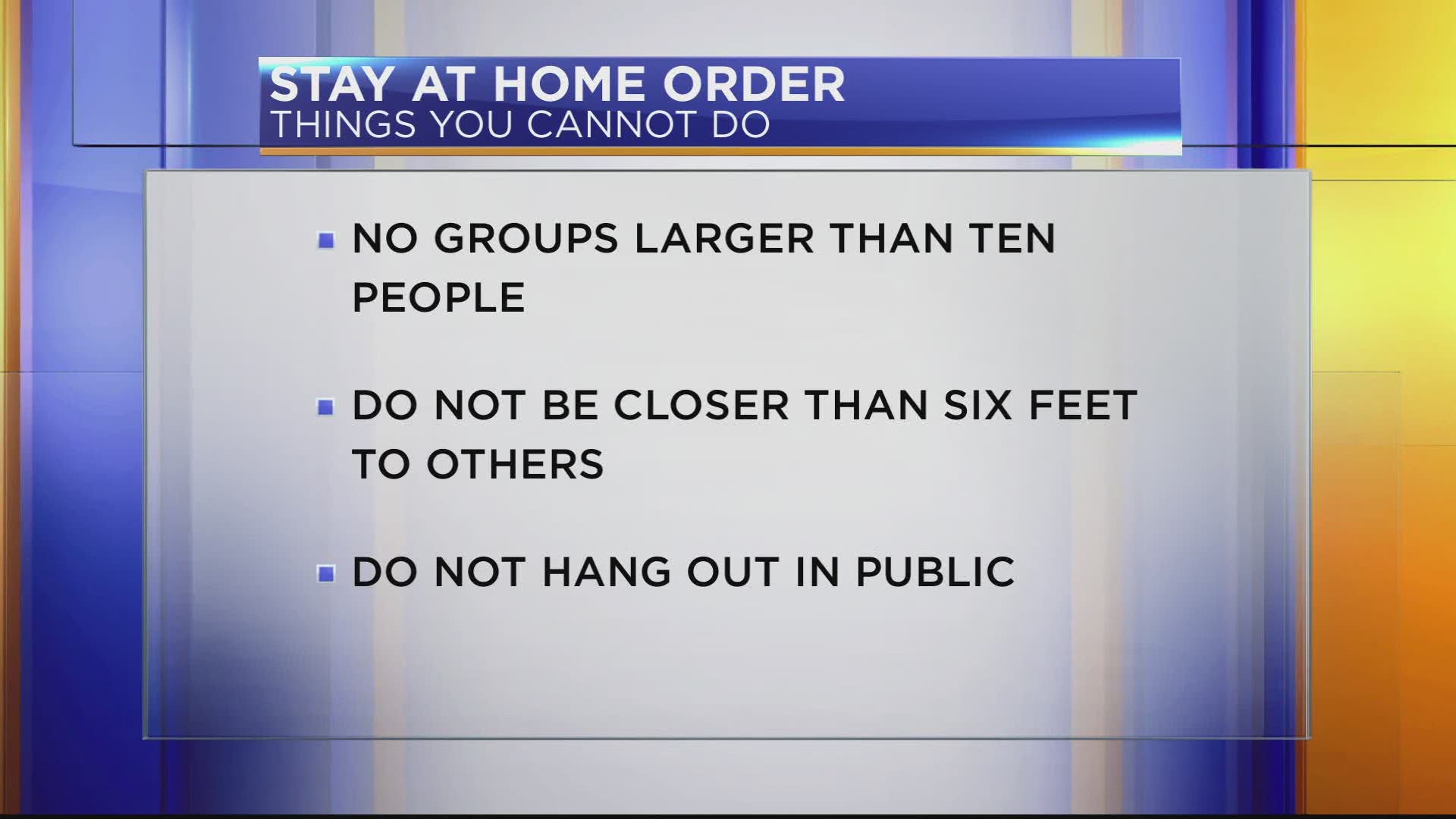MONTGOMERY, Ala. — On Friday, April 3, Governor Kay Ivey announced a stay-at-home order for the state of Alabama to start on Saturday, April 4, at 5:00 p.m.
Many other states are already under stay-at-home or shelter-in-place orders. What does Alabama's order mean, and what can you do and not do?
According to the governor and state public health officer, the reason for the order is to try to reduce the spread of COVID-19. People are ordered to stay home except to perform these essential activities for themselves, a family member, or a friend or loved one who can't leave home or can't care for themselves:
- get necessary supplies including food or consumer goods, supplies needed to work from home, prescriptions or medical supplies, fuel, and educational materials
- get or provide necessary services including health care, government services or benefits, auto repairs, services for people with disabilities, and education
- attend religious service, wedding, or funeral with fewer than 10 people in attendance with maintaining a six-foot distance or a "drive-in" worship services where attendees stay in their cars, the cars are six feet apart, and only members of the same residence are in the car
- to take care of or transport others for essential needs or to donate blood
- to work at "essential businesses". Work activities should not involve regular interaction within six feet of another person.
- to engage in outdoor activity with fewer than 10 people with everyone staying at least six feet apart
- to seek shelter if their residence is unsafe or to seek basic services from a provider such as a food bank.
- to travel as required by law enforcement, court order, or custody agreement
- to see family members
All previous restrictions in place on businesses and operations remain in place.
Watch the announcement here:
In this order, essential businesses include government operations, healthcare providers and caregivers, infrastructure operations, manufacturing facilities, agriculture operations and farms, essential retailers, restaurants and bars, essential personal services, media operations, educational operations, financial services, providers of basic necessities to economically disadvantaged populations, construction and construction-related services, essential public services, military operations, essential services or product providers, religious entities, federally-designated critical infrastructure, other state-designated essential businesses and operations, and support operations for essential businesses and operations.
It also says that, "Essential businesses and operations shall take all reasonable steps, for employees and customers, to (a) avoid gatherings of 10 persons or more and (b) maintain a consistent six-foot distance between persons."
This order is not a suggestion or recommendation. It's the law. And while Attorney General Steve Marshall said that aggressive law enforcement activity is not the attention, people need to take the order seriously or there will be legal consequences.
you

